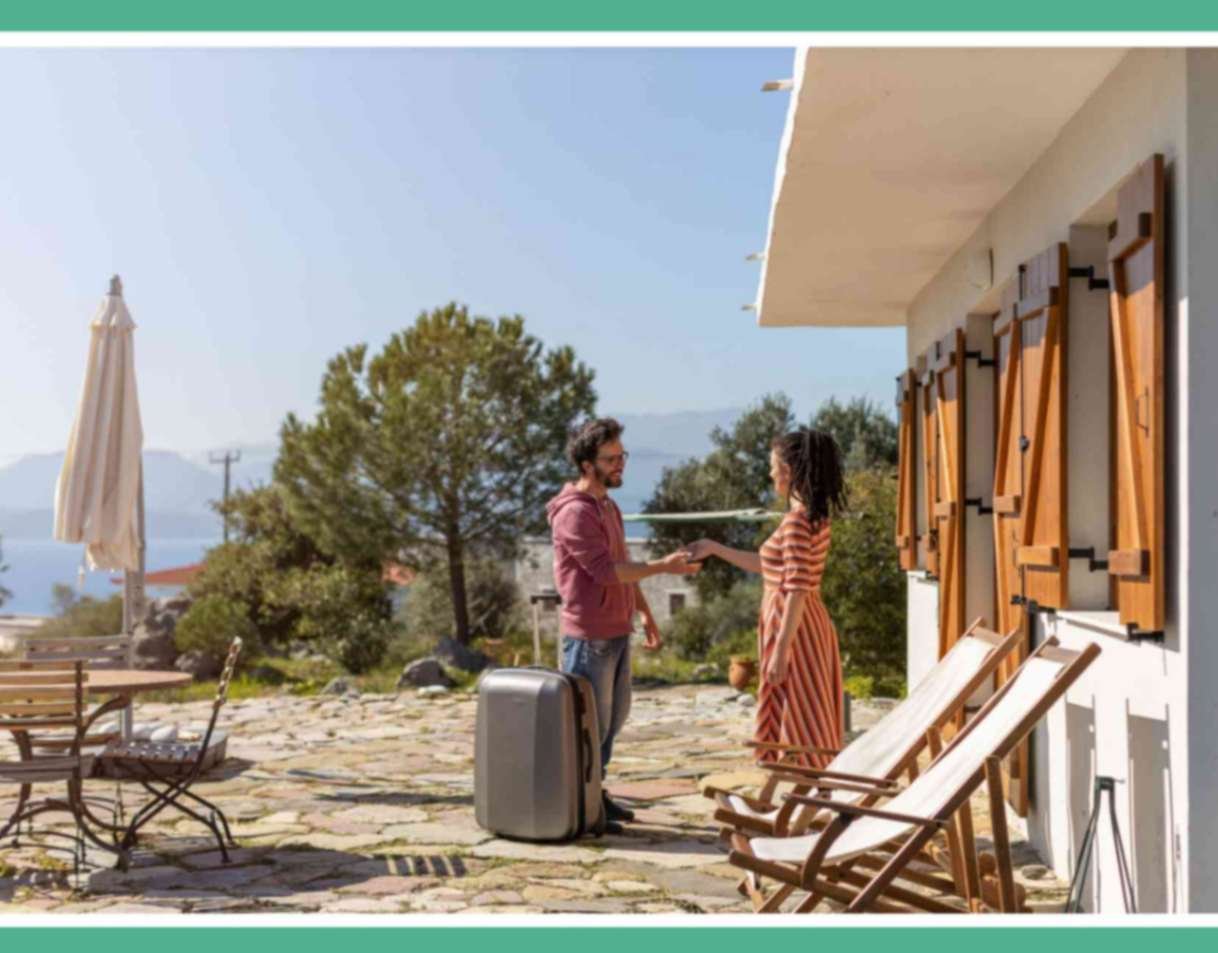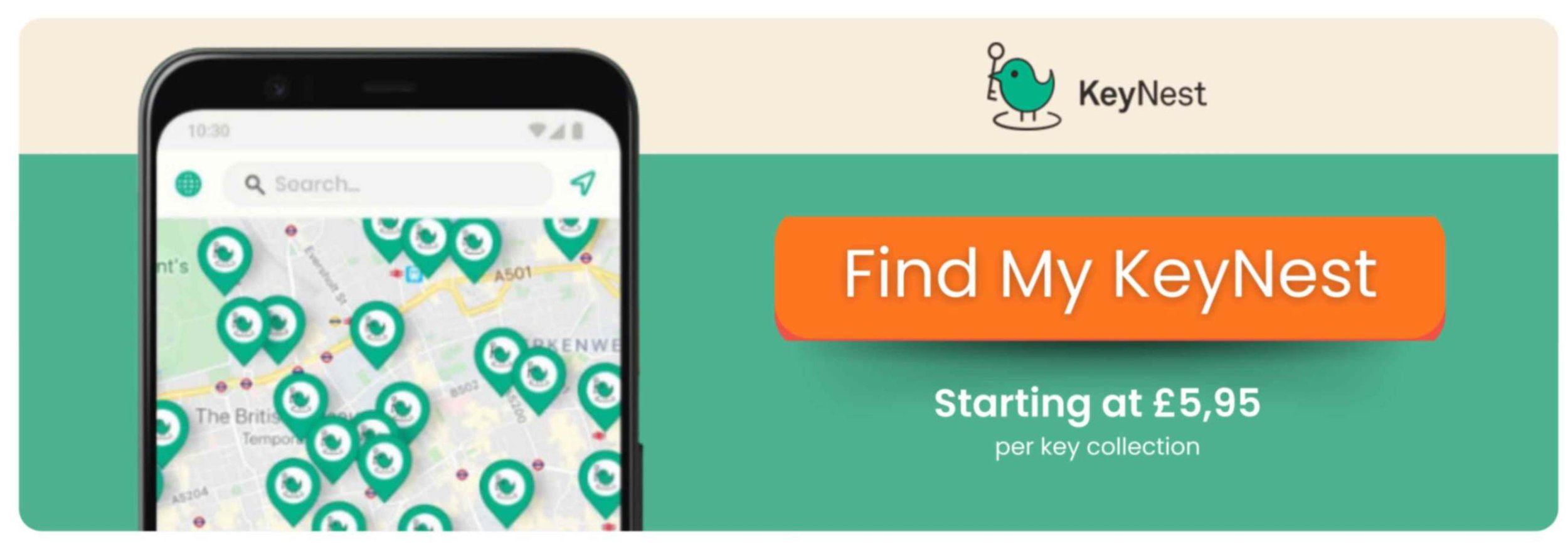Over 1500 key exchange locations nationwide
Airbnb Host Tips: 10 Tips For Running A Successful Airbnb
Airbnb hosting can be an incredibly rewarding experience offering a unique way to generate income while connecting with travelers from around the world. However, managing a successful vacation rental takes more than just providing a place to sleep. It requires organization, attention to detail and a commitment to delivering an outstanding guest experience. Whether you're a new host or someone looking to elevate your hosting game, improving efficiency and effectiveness can make all the difference.
By streamlining your processes, enhancing communication and anticipating guest needs, Airbnb offers hosting into a seamless and enjoyable venture. This not only boosts your reviews but also increases occupancy rates and revenue. In this guide, we'll explore ten practical tips that will help you manage your Airbnb listing like a pro. From automating tasks to creating memorable guest experiences, these strategies will save you time, reduce stress and ensure your guests leave glowing reviews. Let's dive into the essential practices that can transform your hosting journey and set you apart from the competition.
Airbnb has achieved unparalleled growth within its industry since inception. The more organized and guest-focused you become, the more likely you'll stand out from the competition attract repeat visitors and earn Superhost status. Keep reading to discover how you can turn your Airbnb into a top-performing listing that go the extra mile while maintaining a healthy work-life balance.
10 Tips To A Successful Airbnb
1. Automate Your Booking And Communication
Managing an Airbnb listing becomes much easier when you automate routine tasks like booking confirmations and guest inquiries. Automation tools go above and beyond for property management and can save you hours each week and ensure your guests receive timely responses. This not only improves efficiency but also enhances the guest experience by providing consistent communication.
Use automated booking systems: Ensure your calendar syncs across platforms to avoid double bookings.
Set up inquiry templates: Automate pre-arrival, check-in and post-checkout inquiries to keep guests informed.
Enable instant booking: Allow guests to book without waiting for approval, increasing your occupancy rate.
Integrate smart pricing tools: Use dynamic pricing software to adjust rates based on demand and seasonality.
Schedule cleaning services automatically: Coordinate with cleaners using apps like TurnoverBnB or Properly.
2. Create A Detailed House Manual
Hosts who highlight a comprehensive house manual can answer most guest questions and minimize the need for back-and-forth communication. It should cover everything from guess arrival procedures to appliance instructions, ensuring guests can navigate your property with ease.
Highlight check-in and check-out instructions: Make the process smooth with clear arrival and departure steps.
Include appliance and Wi-Fi instructions: Ensure guests can easily connect and use amenities.
List emergency contacts: Provide numbers for local authorities, medical help, and yourself.
Add local recommendations: Suggest nearby restaurants, attractions, and grocery stores.
Explain house rules: Clarify expectations to avoid misunderstandings.
3. Optimize Your Listing And Pricing For Maximum Visibility
To attract more bookings amidst the platform's million listings, your listing needs to stand out in search results. High-quality photos from a professional photographer, compelling descriptions and accurate details are key to getting noticed and booked in the rental market.
Use professional photography: High-resolution images highlight your property’s best features.
Write an engaging title and description: Emphasizing what makes your space unique will lead to increased bookings.
Highlight amenities: Showcase features like fast Wi-Fi, good condition parking, or a pet-friendly policy.
Keep your calendar updated: Regular updates improve your ranking on Airbnb’s search results and can be shown in different countries and regions.
Encourage positive reviews: More 5-star ratings can boost your listing and can have a chance to make visibility more often in the platform.
4. Invest In Key Amenities To Optimize Guest Experience
Providing essential and thoughtful amenities can enhance guest satisfaction and lead to better reviews. Think beyond the basics and offer extras that elevate the guest experience.
Ensure quality bedding and towels: Comfortable sleep can make or break a guest’s stay.
Stock kitchen essentials: Include coffee, tea, and basic cooking supplies.
Provide toiletries: Shampoo, conditioner, and body wash add convenience.
Offer entertainment options: Smart TVs, streaming services, and board games keep guests entertained.
Add a welcome basket: Small snacks and local treats create a warm first impression.
5. Streamline Check-In And Check-Out By Installing A Lockbox Or Use Keyless Entry
A smooth guess arrival and check-out process can significantly enhance the guest experience. Self-check-in options, clear instructions, and timely reminders make everything easier for both you and your guests.
Install a smart lock: Keyless entry allows guests to check in anytime.
Provide clear directions: Detailed instructions prevent confusion upon arrival.
Send reminders: Automated messages for guess arrival and check-out times keep everyone informed.
Outline check-out tasks: Simple steps like stripping beds or running the dishwasher help cleaners.
Offer flexible check-in when possible: Early guess arrival or late check-out can improve guest satisfaction.
6. Maintain A Spotless Space
Cleanliness is one of the top factors guests mention in reviews. A clean, well-maintained space not only enhances comfort but also builds trust and encourages repeat bookings.
Hire professional cleaners: Reliable services ensure consistent quality. Hosts can also charge extra for cleaning fee.
Use a cleaning checklist: Standardized tasks prevent missed details.
Stock cleaning supplies: Guests appreciate access to basic cleaning items.
Inspect after each stay: Spot-check for damages and cleanliness.
Schedule deep cleaning regularly: Refresh carpets, upholstery, and hard-to-reach areas.
7. Communicate Proactively With Guests As Airbnb Host
Effective communication builds trust and ensures guests have a positive experience. Keeping guests informed from booking to check-out reduces uncertainty and improves satisfaction even if you manage multiple listings.
Quick to respond: Fast replies show you’re attentive and reliable.
Send pre-arrival messages: Share guess arrival details and local tips.
Follow up during the stay: A quick guess arrival message can address issues early.
Provide an emergency contact: Guests feel safer knowing they can reach you.
Share check-out instructions: Clear steps simplify departure.
8. Protect Your Property With Smart Tools
While Airbnb provides some protection, investing in smart tools can safeguard your property further. From noise monitors to security cameras (outside only), technology can help you manage risks.
Install smart locks: Control access without physical keys.
Use noise monitoring devices: Get alerts for excessive noise without invading privacy.
Add security cameras: Exterior cameras deter unauthorized guests.
Require a security deposit: This can discourage careless behavior.
Get short-term rental insurance: Airbnb’s coverage may not be enough. So it is advised to consult industry experts in rental insurance.
9. Monitor Reviews And Continuously Improve
Guest feedback is invaluable for refining your hosting practices. Regularly reviewing comments can reveal areas for improvement and highlight what guests appreciate most.
Read all reviews: Look for patterns in guest feedback.
Address issues promptly: Fix recurring problems to prevent negative reviews.
Thank guests for positive reviews: Showing appreciation encourages more feedback.
Update your listing accordingly: Highlight improvements in your description.
Set goals for continuous improvement: Strive for Superhost status through consistency.
10. Balance Efficiency With Hospitality
While efficiency is crucial, balancing it with genuine hospitality creates memorable stays. Thoughtful touches and personalized experiences can turn satisfied guests into repeat visitors.
Add personal touches: Handwritten notes or welcome gifts go a long way.
Offer local insights: Share your favorite spots for dining and sightseeing.
Be flexible when possible: Accommodating special requests enhances guest satisfaction.
Follow up after check-out: A simple “Thank you” message leaves a positive impression.
Stay passionate about hosting: A positive attitude shines through in every interaction.
Final Thoughts
Becoming a more efficient and effective Airbnb host requires a combination of smart systems, thoughtful amenities, and genuine hospitality. Start by automating tasks such as messaging, guest arrival and cleaning schedules to save time and avoid last-minute stress. Optimize your listing with high-quality photos, a compelling description, and accurate availability to attract more guests. Anticipating guest needs, like providing extra toiletries and clear house instructions, ensures a seamless stay.
Cleanliness is non-negotiable, so invest in reliable cleaning services or create a thorough checklist for turnover days. Clear and friendly communication before, during, and after the stay helps guests feel valued and informed. Pay attention to the small details, like welcome notes or local recommendations, to create a personal touch. Remember, the goal isn’t just to host but to create memorable stays that inspire guests to return and recommend your listing. Positive reviews will naturally follow when guests feel cared for and appreciated.
About Us
KeyNest offers you a convenient service for storing and exchanging your property keys. You can drop off a key at any of the 7,000+ locations in our network, so there’s one such Point located next to your property.
Guests, cleaners or contractors can then collect the key securely from a KeyNest Point or KeyNest Locker which is usually open 24/7. You'll be notified each time the key is picked up or returned, and you can even customize check-in and check-out times. By leveraging technology and a global network of locations, KeyNest continues to redefine property management, offering solutions tailored to meet the evolving needs of the rental market.
KeyNest has an ever-expanding global network of locations located just minutes from your property. To find out more you can contact us.
Neil Beltran 21 February 2025


